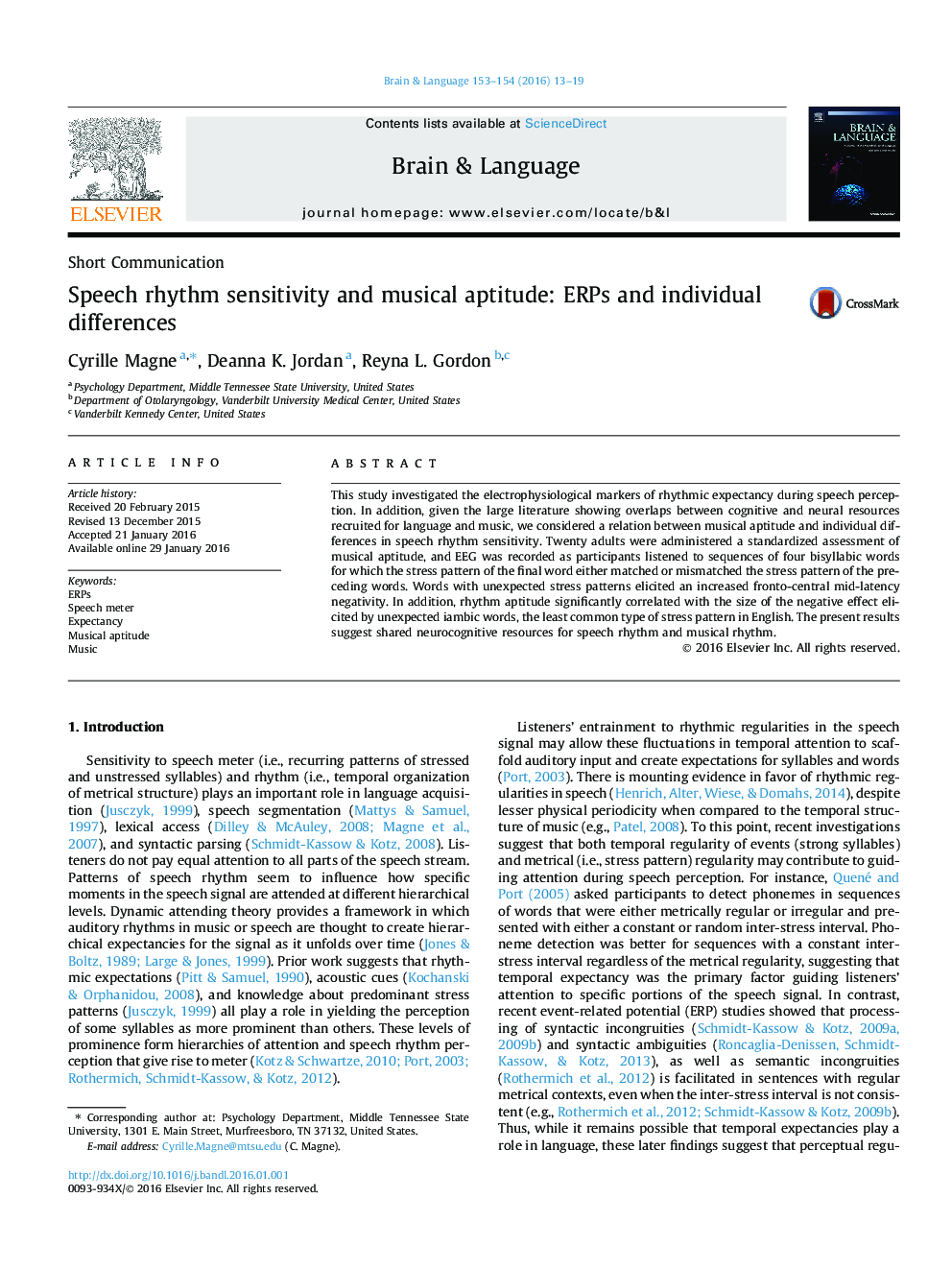| Article ID | Journal | Published Year | Pages | File Type |
|---|---|---|---|---|
| 925263 | Brain and Language | 2016 | 7 Pages |
•We measured speech rhythm sensitivity with ERPs and music skills behaviorally.•Words with unexpected (vs. expected) rhythm elicited larger negative ERP components.•Size of the brain response was correlated with music rhythm aptitude.•Individual differences in music skill explain variance in speech rhythm sensitivity.
This study investigated the electrophysiological markers of rhythmic expectancy during speech perception. In addition, given the large literature showing overlaps between cognitive and neural resources recruited for language and music, we considered a relation between musical aptitude and individual differences in speech rhythm sensitivity. Twenty adults were administered a standardized assessment of musical aptitude, and EEG was recorded as participants listened to sequences of four bisyllabic words for which the stress pattern of the final word either matched or mismatched the stress pattern of the preceding words. Words with unexpected stress patterns elicited an increased fronto-central mid-latency negativity. In addition, rhythm aptitude significantly correlated with the size of the negative effect elicited by unexpected iambic words, the least common type of stress pattern in English. The present results suggest shared neurocognitive resources for speech rhythm and musical rhythm.
